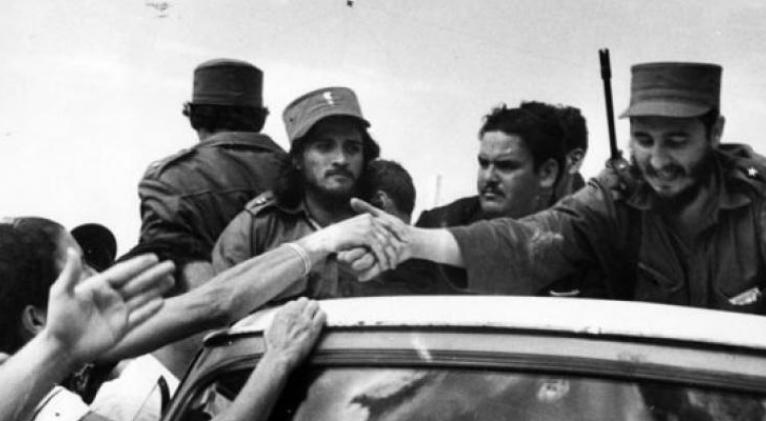Venezuela: The First Country that Fidel Visited
especiales

After the triumph of the Cuban Revolution, Venezuela became the first country visited by leader Fidel Castro. The event took place on January 23rd, 1959.
What motivated the revolutionary leadership to undertake this tour? What was the regional political context? Our team at, CubaSí contacted the renowned professor Hassan Pérez Casabona, who has researched inter-American relations in recent decades to shed light on this.
Why did Venezuela become the first country Fidel traveled to after the triumph?
The triumph of the Revolution was a huge event, a true game changing in the hemispheric history that stirred enormous sympathy on a continental scale.
We cannot ignore that, from Venezuela, the Patriotic Board, with Rear Admiral Wolfgang Larrazábal and other figures, had helped in Sierra Maestra during the final stage of the guerrilla struggle. They provided weapons, including that rifle with a telescopic sight sent directly to Fidel.
Who made up the Cuban delegation?
Revolutionary leaders, among them Pedro Miret, Celia Sánchez, Luis Orlando Rodríguez, Violeta Casal, and Commander Paco Cabrera. They would participate in a tribute for the first anniversary of the overthrow of Marcos Pérez Jiménez dictatorship, which occurred on January 23rd, 1958. This was one of the dictatorships that generated the greatest rejection in the Latin American and Caribbean context.
How did the visit unfold?
The young rebel leader arrived with his entourage to Caracas, on a very intense visit from January 23-27. There were many activities and in different instances. His speech in the so-called Air Square of Silence was remarkable. It’s estimated that more than 300,000 people listened to a vibrant intervention on the fostering of Latin American integration.
There the Commander in Chief spoke about the perspectives and challenges of the region; and he expressed the depth of the transformations that would take place in our country.
He also offered a memorable speech at the Central University of Venezuela, in its Aula Magna. He made a reflection from Bolivarian and Martí ideas, and he was praised. Attending were not just personalities from Venezuela, but also a man like Pablo Neruda, who pronounced his Song for Bolívar and declared that, in that specific historical context, the spirit of the poem portrayed what the figure of Fidel and the revolutionary struggle meant.
What official authorities did Fidel meet with?
He held meetings with Rómulo Betancourt, the Venezuelan president. Also with leaders in other instances of Congress and with sectors of society. He also joined the movement to eradicate other dictatorships, like that of Trujillo's, through a solidarity campaign to contribute bolivars.
What impact did the visit have?
Its implication was extraordinary. It took place just 15 days after entering Havana. A few weeks later, in April, Fidel would carry out his second visit, which was to the United States and, just hours after finishing it, he would make another Latin American tour, which would take him to Argentina, Brazil, Uruguay, and Trinidad and Tobago.
The visit to Venezuela —whose 64th anniversary we are commemorating— was full of beauty. It built a bridge to integrate. He demonstrated that, in addition to all the domestic tasks, the Revolution would promote a new type of vision that rescued the purest ideals of the heroes of independence. They were acts packed with patriotic meaning, solidarity, gratitude from the Cuban people to the Venezuelan people, and the analogy of the common struggle in Latin American countries.
It only had one negative element. On their return, as a result of a plane crash, almost before boarding the aircraft that would transfer them to Havana, Commander Paco Cabrera, a man of great prestige, died. The retinue was filled with sorrow. The rest of the program raised the voice of the revolutionary project and also emphasized the sympathy and passion that a new process like ours aroused. The Venezuelan people entertained the rebel leader at all times; for example, at Maiquetía airport there was an impressive reception.
Within the new CELAC Summit, in Buenos Aires, it’s a song of hope and optimism that visits such as Fidel's to Venezuela in 1959 are remembered, which was, in many ways, a lucidity of the new Latin American and Caribbean hour.
Translated by Amilkal Labañino / CubaSí Translation Staff














Add new comment